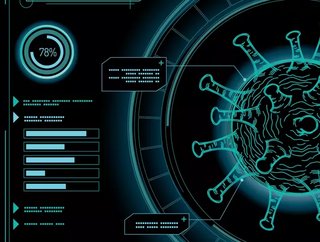Turkish Scientists Support Covid Detection with AI System

The coronavirus pandemic provoked many changes, with virus testing being one of the world’s most significant endeavours. As artificial intelligence (AI) becomes widely used in healthcare, more organisations are unlocking its potential for the most effective diagnosis of diseases.
A group of Turkish scientists has developed an AI-based system, which is capable of detecting the presence of the coronavirus with a 90% accuracy and diagnosis within seconds of testing. The scientists call it the ‘electronic nose’, and it uses data through AI-based algorithms and also has the ability to assess the breathing patterns of hundreds of patients. The scientists plan to introduce the system to hospitals, which is currently at the prototype stage, to detect and act upon coronavirus cases much faster.
From Honey Quality to Human Health
This feat of AI development was originally started by Gökhan Silahtaroğlu and Mesut Yılmaz. The initial purpose of the project was to create a system that assesses the quality of honey and the health of bees. However, when the global pandemic hit, Yılmaz and Silahtaroğlu decided the system could be useful in diagnosing Covid-19. “We first started by putting sensors measuring air quality in beehives and feeding data from there to AI. The sensors were already used in cancer and tuberculosis detection, and we decided to repurpose them to detect the coronavirus. Using sensors, we derived elements of breath and digitised them. By matching them with polymerase chain reaction (PCR) tests, we succeeded in helping the AI learn it,” Silahtaroğlu says.
Silahtaroğlu also explains the system can be used to diagnose other diseases by using the relevant patient data. The initial testing of the AI-based device was carried out on 300 hospital volunteers and demonstrated successful results. The scientists also believe the electronic nose can be applied to other settings like shopping centres, schools and other crowded areas. “People are given balloons and asked to inflate them. The air inside the balloon is then read by the device, which examines chemical activity in the lungs,” says Yilmaz.
Along with the development of this system, Turkish scientists are also involved in research to do with vaccines, drugs to eliminate the coronavirus, and ‘breath tests’ as further detection solutions.






